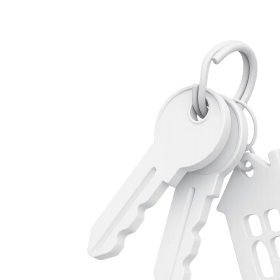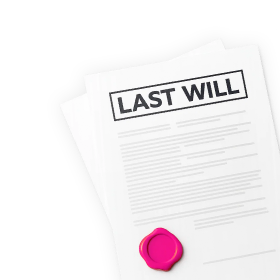The strong property market in Canada has many homeowners asking questions about selling their home.
Perhaps this is your first home you’ve owned and you’ve never been involved in the sale process before, or maybe it’s just been awhile. If that’s the case – or you’re just not sure where to start – we’ve pulled together this step-by-step guide for selling your home. Watch the video below or read on for all the details.
Top tip: we also have a guide to buying your home, if you’re also in the market for a new house!
Step 1: Prep Work
Will you also be buying a property? This will impact the timeline and process involved with the sale of your home, so it’s best to be clear on this from the outset.
You’ll also want to prepare your home for sale. Consider things like: repainting (internally or externally) and decluttering your home to make it look appealing for real estate photos. A buyer wants to be able to picture themselves living in the home, so remember to make it feel fresh and welcoming.
Is the property a condominium? There will be extra documentation required including corporations bylaws, reserve fund information, financial statements and more.
Perhaps you have a tenant living in the property? There will be additional considerations so we recommend you speak to us about the legal implications of selling when the property is leased.
Make a note of any contracts in place for the property – for example, the home alarm service. Will that be something that remains with the property when it sells? These kinds of contracts need to be disclosed to a buyer.
Step 2: Understand how the sale process works
Where you live will affect the sale process.
In Alberta, you’ll need:
- A Real Property Report (RPR). The seller must provide the RPR (unless the parties agree otherwise) along with proof of municipal compliance before closing.
In British Columbia, you’ll need:
- A Property Disclosure Statement (PDS). It reviews details about the property for sale such as whether it has even been a marijuana grow-op, whether there has been any history of flooding or insect infestation, when the hot water tank and roof were last replaced, and if there are any latent or patent defects.
Step 3: Contact a real estate lawyer
A real estate lawyer provides legal counsel for you in the sale of your home, and ensures that you are legally protected.
They can help you with:
- The mortgage discharge process
- Answering your questions
- Dealing with the buyer’s lawyer
- Reviewing the legal documents
- Protecting you legally
- Holding the deposit paid by the buyer
- Finding resolutions for any unexpected delays
- Ensuring the transaction goes through in a timely manner
Step 4: Buying at the same time as selling?
You’ll want to have a real estate lawyer involved to manage the logistics of settling your sale and purchase concurrently.
Step 5: Consider fees
Knowing how much money to set aside for fees will help you plan your sale. You’ll have to pay fees such as:
- Real estate agent commissions can range from 3% – 7% of the sale price
- Legal fees – here at One80 Law, we offer transparent real estate legal fees so you can close with confidence, getting the best value for your money
- Mortgage discharge fees might be payable
- Capital gains tax if the property was an investment property
- Moving costs if you need to remove furniture
- In BC, you will also have to consider property transfer tax
- And in many cases, homeowners consider hiring professional cleaners to help with their move out cleaning
Step 6: Sell, sell, sell!
You’re ready to list the property for sale. Do your research about potential sale prices, and consider getting an appraisal to give you an idea of potential value, if you aren’t using a real estate agent.
However you want to sell the property – through an agent, or on a website listing service, you’ll need to facilitate buyers viewing the property. Once you have a buyer interested who makes an offer, you can then proceed with the sale, finalize the legal documentation and go to closing – the date when the keys are handed over to the new owner.
You might also need to report the sale of your principal residence to the Canada Revenue Agency. Read our blog post to find out more about those requirements.
Now that you know what to consider, it’s time to start looking for an experienced real estate lawyer in Calgary, Kelowna or Whistler. One80 Law’s legal team has the real estate law experience you need.
Book a free consultation today to discuss your plans, and how we can help with the successful and stress-free sale of your home!
Disclaimer: The content on this website is provided for informational purposes only and does not constitute legal advice. To seek legal advice, please contact One80 Law directly to retain a lawyer https://one80law.ca/contact/







